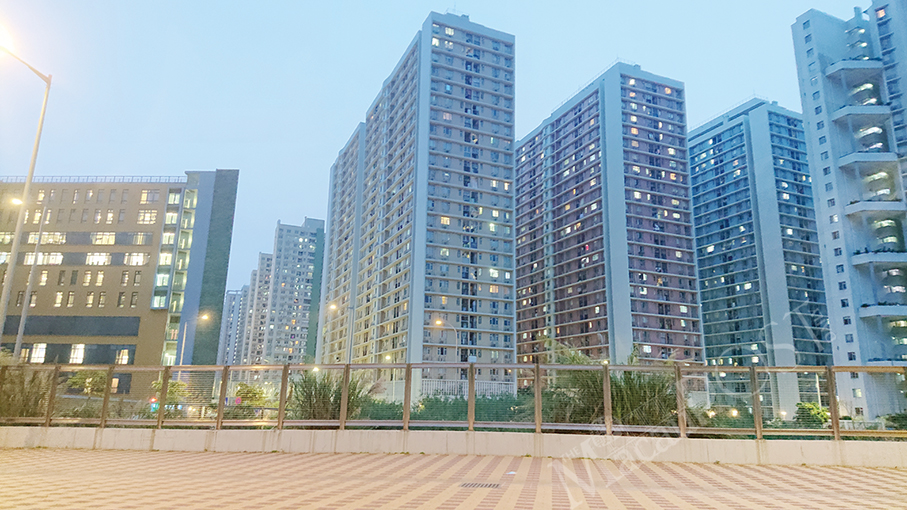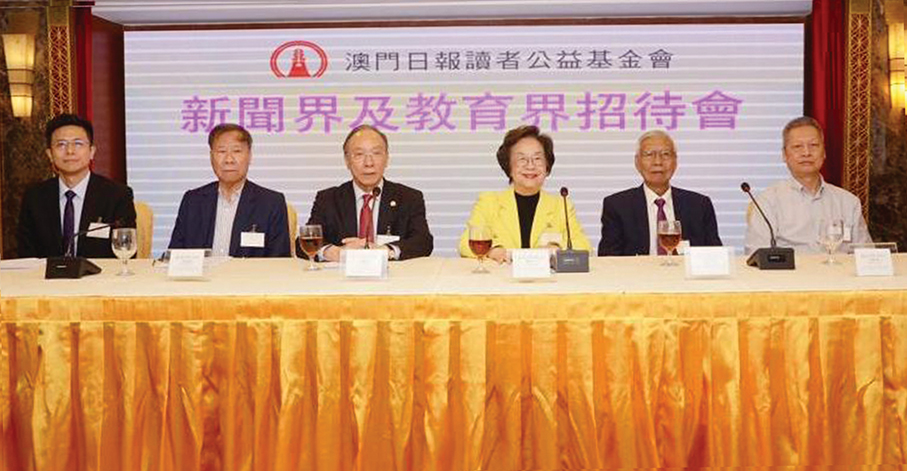Stephy Zhang and Wu Kunling
A wedding portrait of Leung Chung-lan and her husband, along with a photo of Leung and her granddaughter, holds pride of place at the entrance of their two-bedroom apartment on Seac Pai Van public housing estate on Coloane Island.
The complex, which is the Macau Special Administrative Region’s largest housing project for low-income residents, has undergone remarkable transformations in terms of infrastructure in the past decade, significantly enhancing the quality of life for its residents.
Leung, who has lived on the estate for nearly 10 years, has been a firsthand witness to these developments. She moved in with her husband and granddaughter in 2015, a year after President Xi Jinping paid an inspection visit to the area in the run-up to the 15th Anniversary of Macao’s return to the motherland.
During his short visit to the housing community in 2014, Xi interacted with the residents and was deeply impressed by their spirit of love and harmony, their boundless optimism, and their great diligence in leading better lives.
Seac Pai Van serves as a microcosm of Macau’s steady development in terms of improved livelihoods and social environment. In 2013, the estate welcomed its first residents. Today, it has approximately 18,000 people living in 9,515 housing units.
The complex comprises one block of social housing, available for underprivileged families to rent, and three blocks of subsidised home-ownership housing, which allows low-income families to buy flats at affordable prices. The name of each block mirrors the hope of residents to live and work happily.
Leung recalled that when she first moved in, there were very few residents, and the infrastructure for public transportation and education was not well developed. Amenities such as well-stocked supermarkets and proper restaurants were also lacking.
Leung often had to take a one-hour bus ride to downtown to buy daily necessities, while her granddaughter had to commute daily to the Macau peninsula for elementary and secondary school education, as there were no schools in the area.
The times have changed for the better. The Seac Pai Van Public School, which opened in the 2020-21 academic year, is located right across the street from the public housing estate, and offers kindergarten, elementary and secondary education.
“Now that we have a school nearby, nobody has to go that far for education. It saves a lot of time,” Leung said.
Last month, the Seac Pai Van line of Macau’s Light Rapid Transit (LRT) system officially opened to the public. It is the first route outside the main Taipa-Cotai line and has made commuting for work or leisure more convenient for residents of the housing estate.
Acting on Xi’s suggestions, the housing estate has added more green areas and other eco-friendly facilities for residents to relax both mentally and physically. There are also new shopping centers, tea houses and cafés, as well as a public library, in the area.
With the steady development of the area surrounding it, the estate has recorded a surge in residents. “Our housing community is more lively and cheerful now, which brings us residents a lot of joy,” Leung said.
As of the end of last year, 15,547 social housing units in Macau were occupied, an increase of over 21 percent compared with a decade ago. Similarly, 36,963 subsidised home-ownership (HOS) housing units were occupied as of the end of 2023, an increase of more than 12 percent from 2013.
This year, around 13,600 households in Macau have been eligible for rent exemptions of up to 2,000 patacas, with an expected total annual exemption amount of about 82 million patacas.
Macau Institute of Management President Samuel Tong Kaichung noted that although Macau has limited space, data shows that local residents have relatively low housing pressure.
The 2021 census shows that of the city’s over 200,000 households, 73.4 percent are self-owned units and an additional 6.4 percent are social housing units. This means that at least 80 percent of residents have had their housing needs adequately addressed since Macau’s return to the motherland.
The Macau SAR government has continuously improved its five-tier system for housing – social housing, HOS housing housing, elderly housing, and private housing.
In addition to boosting the construction and supply of various categories of public housing, the government has also implemented measures to promote the healthy development of the private property market.
Notably, it launched the Macau New Neighbourhood (MNN) project in the Guangdong-Macau In-depth Cooperation Zone in Hengqin. The large residential complex covers approximately 620,000 square meters, addressing the housing needs of more residents.
Tong said the series of housing policies and measures implemented in the MSAR have met the needs of a majority of the city’s residents.
Citing the example of the Seac Pai Van public housing estate, he said the area’s improved infrastructure for transportation, education and recreation has earned praises from the residents of even traditionally developed urban areas.
Tong said he believes that Macau has the capability of ensuring that families with varied economic circumstances can live and thrive in the city.
Henry Hong Waitong, a member of Macau’s Public Housing Affairs Committee, noted that current application figures suggest the city is poised to meet its residents’ housing needs in the future, but cautioned that the MSAR government should continue to closely monitor the growing public housing demand.
While social housing applications and allocations adhere to fixed schedules, subsidised HOS housing units are subject to flexible timelines, posing challenges for gauging housing needs accurately, Hong said, adding that fluctuations in household sizes could also influence the demand.
Public housing plans should consider the needs of future generations of current dwellers, he said. Ensuring that the system can address such diverse needs to fundamentally enhance civil society’s living standards is a key issue the MSAR government must take into consideration, he added.
– Courtesy of China Daily

This file photo taken last year shows some of the public housing buildings in Coloane’s Seac Pai Van. – Photo: Tony Wong





